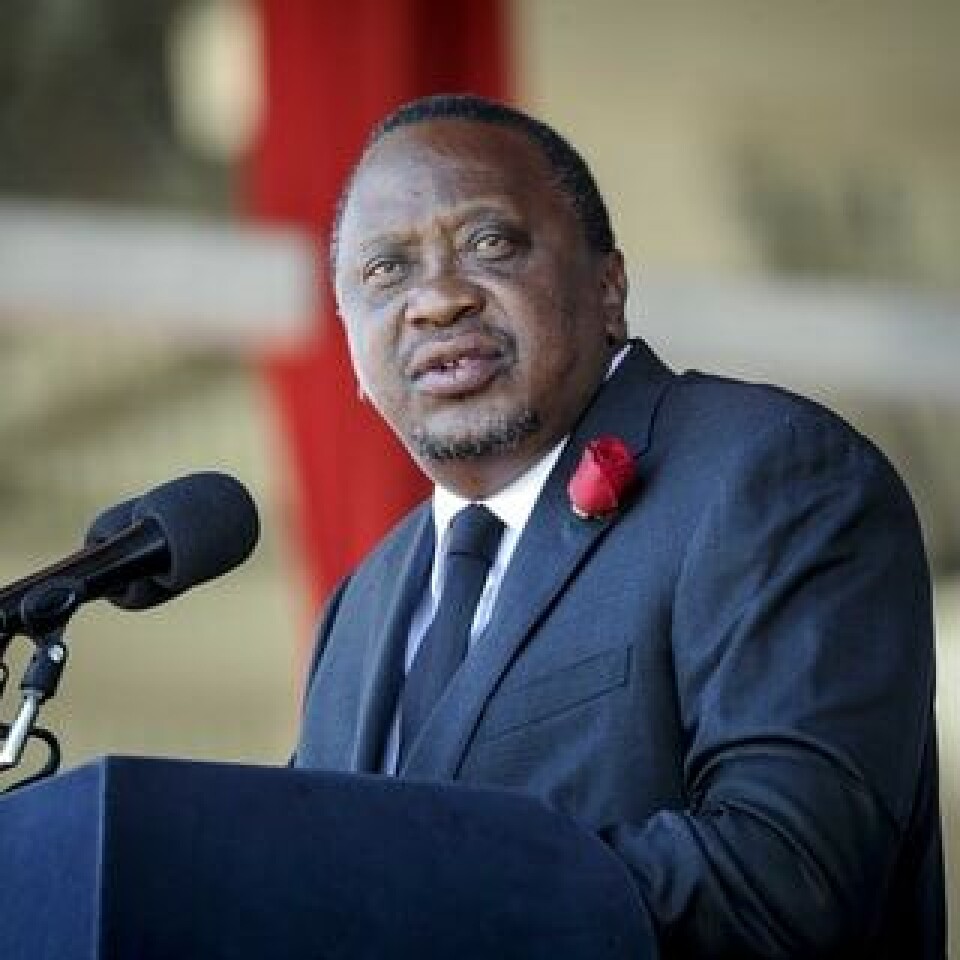Copyright : Re-publication of this article is authorised only in the following circumstances; the writer and Africa Legal are both recognised as the author and the website address www.africa-legal.com and original article link are back linked. Re-publication without both must be preauthorised by contacting editor@africa-legal.com
Ukora Mahakamani (Corruption in the Courts)

After Kenya’s President Uhuru Kenyatta recently rejected six judges, nominated for appointment by the Judicial Service Commission (JSC), the High Court of Kenya has intervened. Judy Waguma reports from Nairobi.
While rejecting the list, President Kenyatta cited integrity issues among some judges and defended his move saying, “as president, I will choose the right over the convenient, I will choose the hard over the easy, I am doing this for all Kenyans.”
In his judgment, Justice James Makau issued an order barring the JSC from receiving any petition against the judges.
In the case filed by Bernard Odero Okello, the lawyer told judges the President was unfairly discriminating against the rejected judges quoting the 2010 Constitution of Kenya Article 166 which states, “The President shall appoint all other judges, in accordance with the recommendation of the Judicial Service Commission.”
Justice Makau has also petitioned the new Chief Justice Martha Koome to institute a bar to protect the six judges scheduled to serve in the Court of Appeal and High Court respectively. The six are George Odunga, Weldon Korir, Aggrey Muchelule, Joel Ngugi, Judith Omange, and Chief Magistrate Evans Makori.
The JSC completed the recruitment of the judges between July and August 2019 and presented the list to President Uhuru for appointment. The list comprised 11 judges to the Court of Appeal, 10 judges to the Employment and Labour Relations Court and 20 judges to the Environment and Land Court.
However, in a special gazetted notice, issued June 3 2021, President Uhuru appointed only 34 judges. Former Chief Justice David Maraga has joined a prominent list of numerous calls made to the President to appoint all the 41 Judges.
Speaking to a local TV station Maraga said, “the president’s only role in appointment of judges is ceremonial. We received the report but were not given particulars…the names in the list have also changed.”
CJ Koome then urged the President to appoint the six judges citing the Judiciary’s dire need due to increased case backlogs in the courts.
Mercy Deche, former vice chairperson of the Judicial Service Commission said, “We are talking about two years; the hardest hit was the Court of Appeal because it had taken a lot of innovation by the president of the court to survive and stay afloat.”
“Damage has been done to people’s liberty; appeals could not be heard. Courts in Malindi, Kisumu, Mombasa were all shut down and the judges had to wait for two years; they were not employed by anyone, their livelihoods were at stake,” added Deche.
Kenyans resorted to social media platforms to express their frustration with hashtags #UkoraMahakamani (Corruption in the courts) and #MyCourtStory going viral.
Tania Broughton reports that the Law Society of Kenya has won a crucial court battle ensuring the independence of the judiciary, and constitutional commissions and tribunals in that country.
The Constitutional and Human Rights Division of the High Court ruled that the President acted illegally, and contrary to the Constitution, when in February last year, he sought to “reorganise government”, allocating the judiciary, tribunals, and independent offices, under various ministries and government departments.
Judge Makau, who also heard this petition, said those impacted by the President’s executive order, beyond the judiciary, included the public service commission, the judicial service commission, office of the director of Public prosecutions, the ethics and anti-corruption commision and the human rights commission.
The law society’s protest , he said, was based on the fact that the Constitution did not allow for this and, if the President got his way, it would seriously undermine their independence, especially so because they would have no control over their finances.
He said the President, while head of State and Government, did not have a blank cheque to exercise powers he did not have.
He also could not hide behind the twin doctrines of parliamentary privilege and separation of powers to escape judicial scrutiny of his executive order.
“By allowing such amendments, the judiciary will be perceived by the public to be an appendage of the executive which, in effect, is unconstitutional because it usurps the powers of independent constitutional commissions and the independence of the judiciary.”
Judge Makau said the President had no power to do what he did.
The Constitution, he said, was enacted by way of referendum.
“It is a direct expression of people’s will. All State organs, when exercising their delegated powers, have to bow to the will of the people.”
With extra reporting by Tania Broughton.
To join Africa Legal's mailing list please click here
